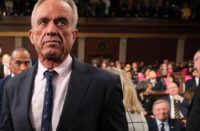On a recent Sunday, US President Biden took the bold step of granting a comprehensive pardon to his son, Hunter Biden. Hunter had earlier this year been found guilty of federal gun and drug charges and had admitted to tax charges in the state of California.
The act of presidential pardon has been a source of debate and controversy for a long time, as it has often been seen as an outgoing gesture by presidents on their way out of office. A notable example of such a controversial pardon was given by President Gerald Ford less than a month into his term. On September 8, 1974, Ford proclaimed a complete pardon for Richard Nixon for all crimes committed or potentially committed against the United States. This act led to a significant drop in his approval rating and a resignation from his press secretary.
What exactly is a presidential pardon? According to Article II, Section 2 of the Constitution, the President has the power to grant pardons, a right inspired by the English legal tradition dating back to the 7th century. The power to pardon encompasses pardon, amnesty, commutation, and reprieve, each carrying different implications. However, a president cannot issue a pardon in cases of impeachment or offenses against the United States, like treason.
A presidential pardon can have significant implications for the pardoned individual, as it can help eliminate some of the consequences of conviction and restore a person’s civil rights. While the offense is not removed from a person’s criminal record, the pardon can be beneficial in obtaining licenses, bonding, or employment.
So far, Hunter Biden is the 26th person to receive a pardon from President Biden, with most pardons related to drug offenses. This trend was initiated by former President Barack Obama. During President-elect Donald Trump’s first term, he had pardoned 29 individuals.
Former presidents have also pardoned family members, with President Bill Clinton pardoning his brother Roger Clinton and Trump pardoning Charles Kushner, his son-in-law’s father. A presidential pardon can also be preemptive, as seen in Ford’s pardon of Nixon and President Jimmy Carter’s pardons for Vietnam draft evaders.
Once granted, a presidential pardon is usually irreversible, unless it was granted by a president who was subsequently impeached. In recent history, both Clinton and Trump have been impeached, but their pardons remained in place after their terms.
In conclusion, the presidential pardoning process, while controversial, is a powerful tool at the disposal of the President of the United States, and President Biden’s recent pardon of his son Hunter is the latest example of this practice.





